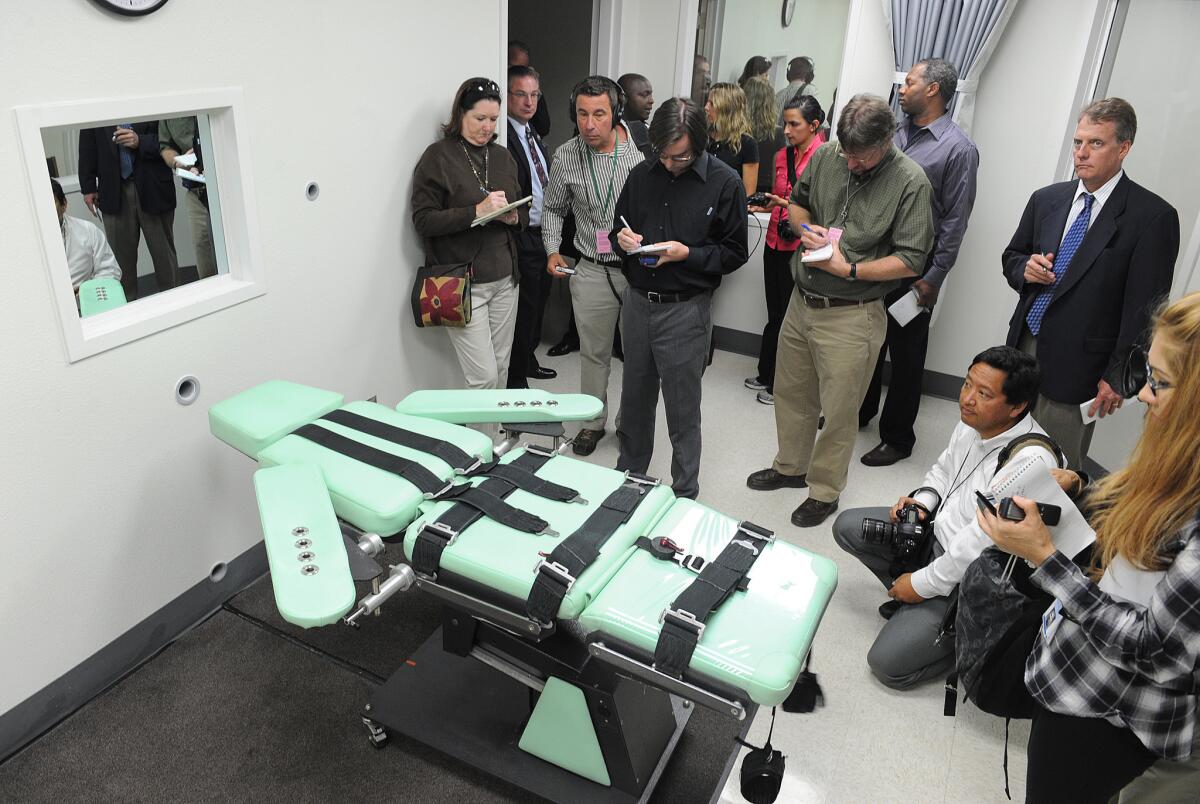A death penalty dilemma for Missouri as drug supplier backs out

The United States’ abhorrent embrace of the death penalty has led to some odd moments, not the least of which was an Oklahoma drugstore’s pledge Monday not to sell a drug to the state of Missouri for use in an upcoming execution. While it would be nice if the Apothecary Shoppe had ruled out the sale on grounds of principle, it was responding to a lawsuit by condemned killer Michael Taylor.
The drug at issue is pentobarbital, and it turns out the compounding pharmacy in Tulsa had only recently become licensed to sell its products in the state of Missouri. Yet it had already provided pentobarbital for three earlier executions.
How? A Missouri corrections worker traveled to Tulsa with a wad of cash to buy the drug, according to St. Louis Public Radio:
The Apothecary Shoppe sold the state compounded pentobarbital for three executions, but it only recently became licensed with the Missouri Board of Pharmacy. A corrections official had been taking thousands of dollars in cash to the Tulsa pharmacy.
“We filed this lawsuit to prevent the unlawful compounding of pentobarbital,” [Taylor’s attorney Carrie] Apfel said. “Miscompounded pentobarbital poses a grave risk of suffering and pain in violation of the 8th Amendment, as well as federal and state law.”
Compounding pharmacies are not regulated by the Food and Drug Administration, and their products have a significantly higher failure rate than manufactured drugs. It’s also against the law for compounding pharmacies to make copies of manufactured drugs — like pentobarbital.
Missouri says it has enough drugs to carry out the execution anyway, but the questionable manner in which the corrections department had been procuring pentobarbital just underscores the unsavory nature of the death penalty itself.
And the nation’s embrace of the death penalty — 32 states and the federal government use it for a range of crimes — has made the U.S. something of an international pariah; European drug manufacturers refuse to sell some of their drugs in the U.S. because they could be used for lethal injections. The Associated Press reports:
EU nations are notorious for disagreeing on just about everything when it comes to common policy, but they all strongly — and proudly — agree on one thing: abolishing capital punishment.
Europe saw totalitarian regimes abuse the death penalty as recently as the 20th century, and public opinion across the bloc is therefore staunchly opposed to it.
The EU’s uncompromising stance has set off a cat-and-mouse game, with U.S. corrections departments devising new ways to carry out lethal injections, only to hit updated export restrictions within months.
“Our political task is to push for an abolition of the death penalty, not facilitate its procedure,” said Barba Lochbihler, chairwoman of the European Parliament’s subcommittee on human rights.
Europe’s tough stance has caused U.S. states to start experimenting with new drug mixtures, even though convicts’ lawyers and activists argue they increase the risk of painful prolonged death and may violate the constitutional ban on cruel and unusual punishment.
California last year dropped its fight to use a three-drug protocol and said it would start researching compounds for single-drug executions. Rather than trying to find a smoother way to kill, the state would be on firmer moral ground if it began researching ways to abolish the death penalty.
ALSO:
The wrong way to fix Obamacare
McManus: The tea party grows up
Gun control made harder in California
Follow Scott Martelle on Twitter @smartelle
More to Read
A cure for the common opinion
Get thought-provoking perspectives with our weekly newsletter.
You may occasionally receive promotional content from the Los Angeles Times.







